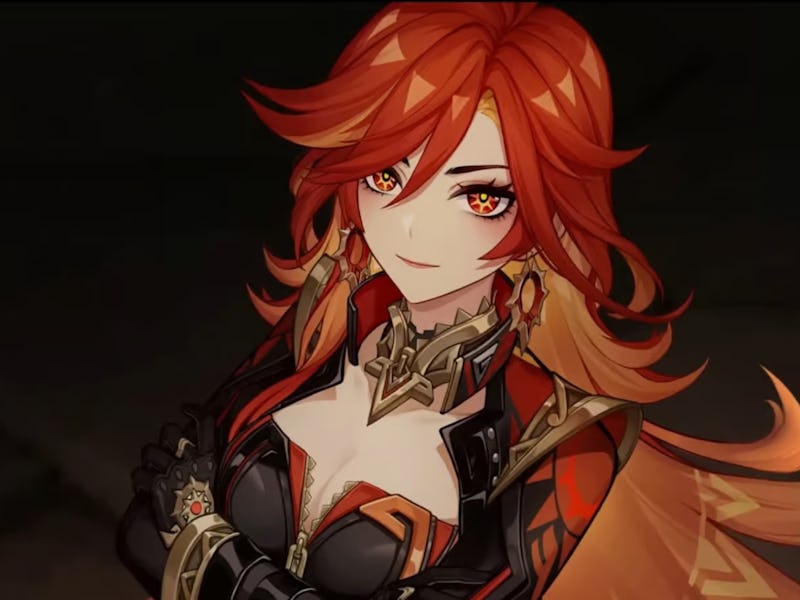Genshin Impact Voice Actors Join Call for Hoyoverse to Do Better On Representation
Hoyoverse hasn’t learned from past mistakes.

Shortly after Hoyoverse launched its latest game, Zenless Zone Zero, earlier this month, the developer has revived a long-running criticism from players in Genshin Impact. Also in July, Hoyoverse debuted a trailer for Natlan, the next region coming to Genshin Impact. And while fans have been looking forward to the upcoming area, the trailer’s reveal of additions to the cast have fans once again accusing the developer of cultural appropriation and whitewashing — and now even Genshin Impact voice actors are joining in.
From its name and looks at the area in trailers, Natlan appears to be inspired by African and Latin American cultures. That’s common for Genshin Impact, which already has nations based on France, Japan, and more. But after the Natlan trailer’s reveal, players noticed its characters continue the Genshin Impact tradition of having a shockingly white cast for a game influenced by such diverse real-world cultures. That’s led to nonstop criticism and even calls for a boycott from players online.
Hoyoverse did not immediately respond to Inverse’s request for comment.
Ororon, based on the Yoruba deity Ọlọrun, has been the focus of much of the Natlan controversy.
Now the pushback has gone even further, with voice actors who currently play characters in Genshin Impact weighing in on the side of the dissatisfied players.
“It’s just disappointing when parts of the world that are so seldom reflected in media could be portrayed accurately,” Allegra Clark, who voices the character Beidou, said on social media.
Many of the game’s actors, including Valeria Rodríguez (who plays Surcrose), Alejandro Saab (Cyno), and Khoi Dao (Albedo) have focused their attention on one new character. Ororon is believed to be based on Ọlọrun, the supreme deity of the Yoruba religion, which started in what is now Nigeria. Despite Ọlọrun being historically depicted with black skin, Ororon is not. Rodríguez points to Smite, which featured its own version of Ọlọrun that’s much closer to the deity’s traditional depictions.
"This is unforgivable. Look at what a sick job Smite did with their own interpretation!” Rodríguez wrote. “It's not hard!"
This isn’t the first time Hoyoverse has been criticized for this problem. The vast majority of Genshin Impact’s characters have extremely light skin, which has been the case since launch. But pushback to lack of representation for other people has grown over the years as the game has expanded its world and its real-life inspirations. Tensions previously peaked around the launch of Sumeru, a nation primarily based on the Middle East. Like Natlan, Sumeru drew from the culture and mythology of that region while featuring an almost exclusively white cast of characters.
But while Sumeru drew plenty of ire from fans, the reaction to Natlan has been much bigger. It’s not clear why the response to Natlan has been so much larger than previous controversies, but it may be the fact that the issue is becoming a more obvious pattern with Hoyoverse. If just one of Genshin Impact’s regions had offended fans, the outcry could be expected to dwindle, especially if Hoyoverse took their words to heart. But the repeated refusal to offer representation for the people of real-life places it’s borrowing from looks increasingly disrespectful the more it’s repeated, particularly when players have been so vocal for so long about the need for a change.
Genshin Impact bases its in-game nations on real cultures, but doesn’t representation real-world diversity.
The fact that Genshin Impact’s own voice actors are joining the conversation shows how seriously many are taking this issue. Voice actors are often expected to be cheerleaders for the projects they work on, and as some of the most visible faces of a game, they can be easily targeted by players unhappy with any aspect of it. Speaking up against an employer could also put them at risk of losing future work, making the fact that so many have raised their voices remarkable.
So far, there’s been no response from Hoyoverse despite the attention this issue has received. It’s worth noting that while Honkai Star Rail and Zenless Zone Zero have plenty of visually distinct characters, their casts still overwhelmingly favor characters with light skin. But despite Hoyoverse repeating what fans see as a mistake time after time, the much higher volume of fans’ responses this time could mean their voices are finally heard.